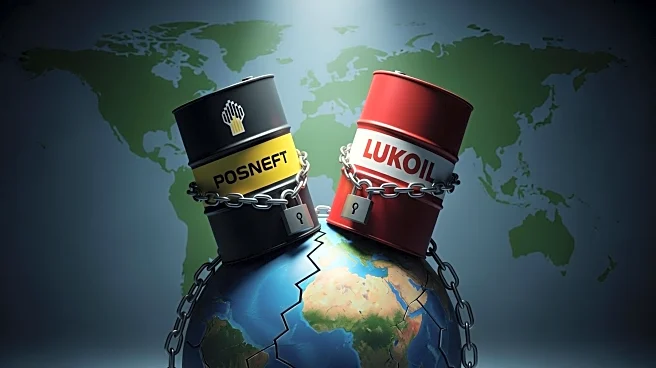What's Happening?
The UK government has imposed sanctions on Russia's largest oil exporters, Rosneft and Lukoil, in response to their role in financing the ongoing invasion of Ukraine. These sanctions mark the first time
the UK has directly targeted these top Russian crude producers, who collectively export approximately three million barrels of oil daily. The sanctions also extend to 44 'shadow fleet' tankers, four oil terminals in China, and Nayara Energy Limited, a major Indian refinery that re-exports Russian energy. The UK aims to cut off funding for Russia's war efforts by restricting access to its financial services sector, which has global influence.
Why It's Important?
The sanctions against Rosneft and Lukoil are significant as they target key players in Russia's oil industry, potentially disrupting global oil supply chains. By limiting access to British financial services, the UK seeks to weaken Russia's economic capabilities and its ability to sustain military operations in Ukraine. This move could lead to increased volatility in global energy markets, affecting oil prices and supply stability. Countries reliant on Russian oil may need to seek alternative sources, impacting international trade dynamics and energy security.
What's Next?
The UK sanctions could prompt other Western nations to consider similar measures, further isolating Russia economically. The effectiveness of these sanctions will depend on the global response and the ability of sanctioned entities to find alternative markets or financial channels. Additionally, Ukraine's ongoing military actions against Russian energy infrastructure, with potential U.S. support, may intensify, further impacting Russia's oil production and export capabilities.
Beyond the Headlines
The sanctions highlight the ethical and geopolitical dimensions of energy trade, as countries balance economic interests with political and humanitarian considerations. The move underscores the growing trend of using economic tools to exert pressure in international conflicts, raising questions about the long-term implications for global trade and diplomatic relations.









